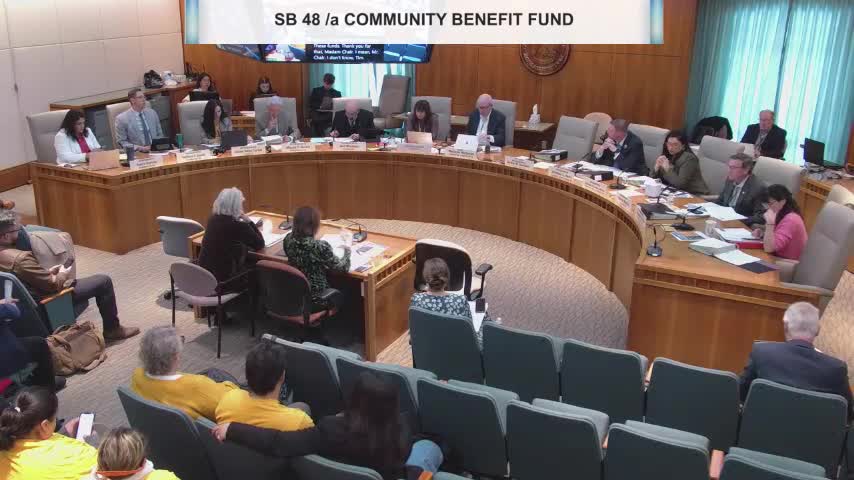New Mexico Workforce Solutions Expands Training Programs for Displaced Workers
March 08, 2025 | Energy, Environment & Natural Resources, House of Representatives, Committees, Legislative, New Mexico
This article was created by AI summarizing key points discussed. AI makes mistakes, so for full details and context, please refer to the video of the full meeting. Please report any errors so we can fix them. Report an error »

In a recent meeting of the New Mexico Legislature's House Energy, Environment and Natural Resources Committee, lawmakers discussed critical legislation aimed at expanding worker training programs across the state. The focus was on ensuring equitable access to training opportunities, particularly for communities outside major urban centers like Las Cruces and Albuquerque.
A key point raised during the session was the need for comprehensive outreach to ensure that worker training initiatives address the needs of diverse communities, including those that are often overlooked. Lawmakers emphasized the importance of not confining training programs to larger cities, advocating for a more inclusive approach that considers the unique needs of regions such as Northwest, East Side, and Southwest New Mexico.
One significant proposal discussed was a $7 million request for a solar technician apprenticeship program aimed at displaced workers in San Juan County. This initiative reflects a broader effort to enhance workforce training in response to the growing demand for skilled labor in renewable energy sectors. Additionally, the committee highlighted the urgent need for training programs for firefighters, addressing a critical shortage in public safety personnel.
The legislation mandates that workforce development agencies actively engage with overburdened communities to encourage participation in training programs. This dual approach aims to not only provide training but also to ensure that these communities are not further burdened by new initiatives.
The meeting also underscored the collaboration between workforce training programs and local educational institutions, such as community colleges. These partnerships are seen as vital for developing a skilled workforce ready to meet the demands of emerging industries, particularly in climate-related jobs.
As the committee moves forward, the emphasis on equitable training and community engagement will be crucial in shaping the future workforce in New Mexico. The discussions reflect a growing recognition of the need for inclusive policies that support all regions of the state, ensuring that no community is left behind in the transition to a more sustainable economy.
A key point raised during the session was the need for comprehensive outreach to ensure that worker training initiatives address the needs of diverse communities, including those that are often overlooked. Lawmakers emphasized the importance of not confining training programs to larger cities, advocating for a more inclusive approach that considers the unique needs of regions such as Northwest, East Side, and Southwest New Mexico.
One significant proposal discussed was a $7 million request for a solar technician apprenticeship program aimed at displaced workers in San Juan County. This initiative reflects a broader effort to enhance workforce training in response to the growing demand for skilled labor in renewable energy sectors. Additionally, the committee highlighted the urgent need for training programs for firefighters, addressing a critical shortage in public safety personnel.
The legislation mandates that workforce development agencies actively engage with overburdened communities to encourage participation in training programs. This dual approach aims to not only provide training but also to ensure that these communities are not further burdened by new initiatives.
The meeting also underscored the collaboration between workforce training programs and local educational institutions, such as community colleges. These partnerships are seen as vital for developing a skilled workforce ready to meet the demands of emerging industries, particularly in climate-related jobs.
As the committee moves forward, the emphasis on equitable training and community engagement will be crucial in shaping the future workforce in New Mexico. The discussions reflect a growing recognition of the need for inclusive policies that support all regions of the state, ensuring that no community is left behind in the transition to a more sustainable economy.
View full meeting
This article is based on a recent meeting—watch the full video and explore the complete transcript for deeper insights into the discussion.
View full meeting
